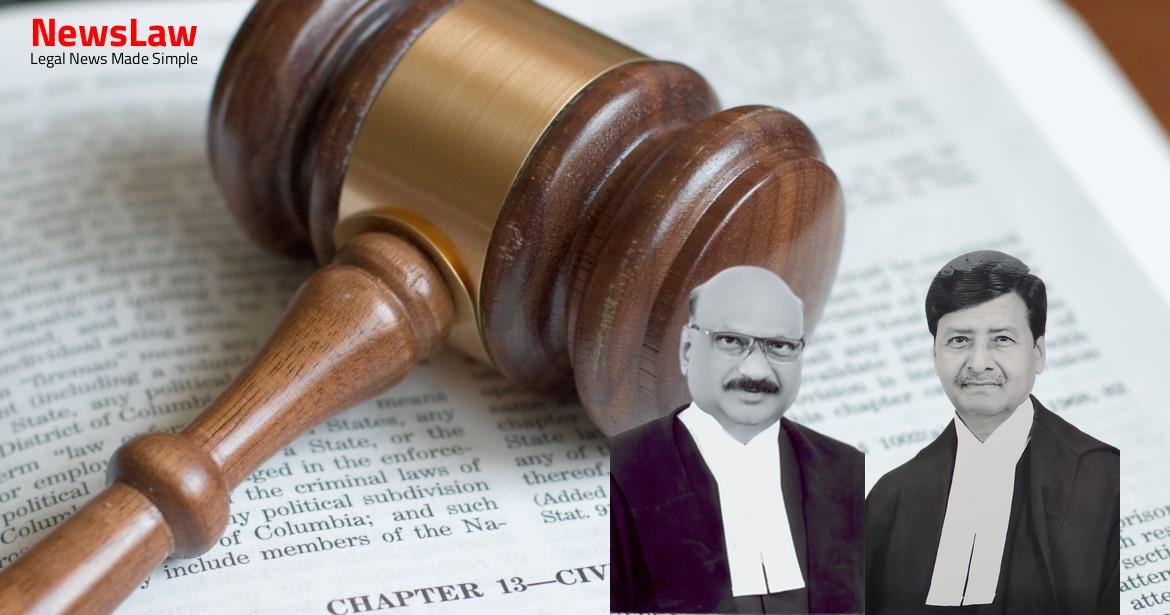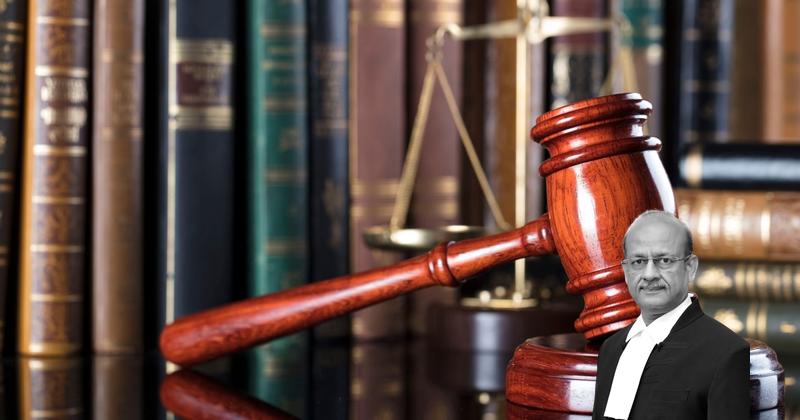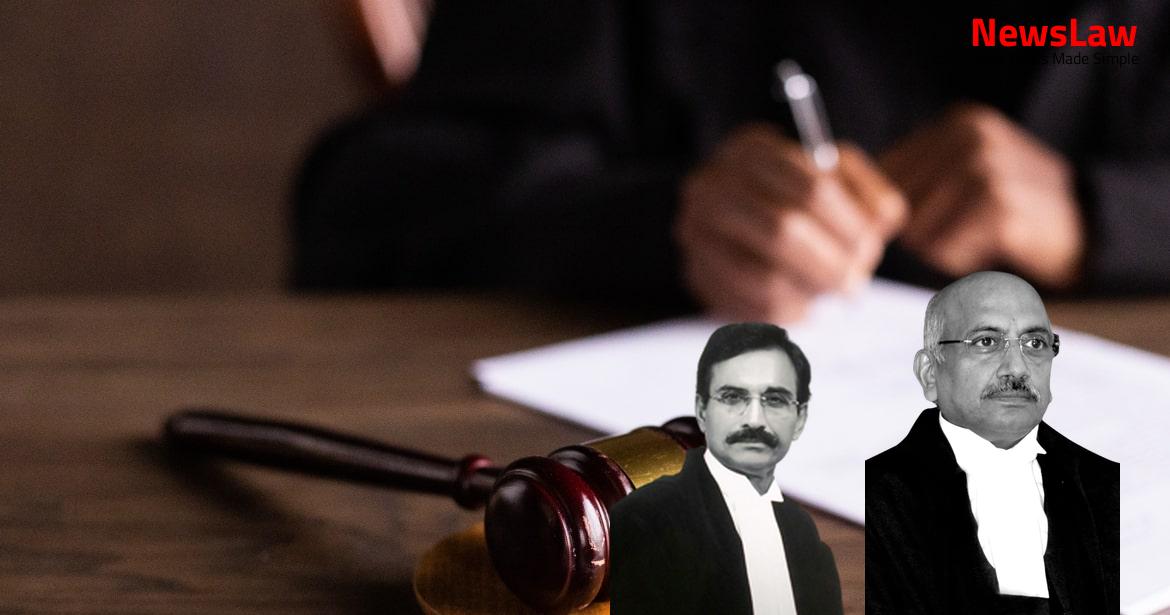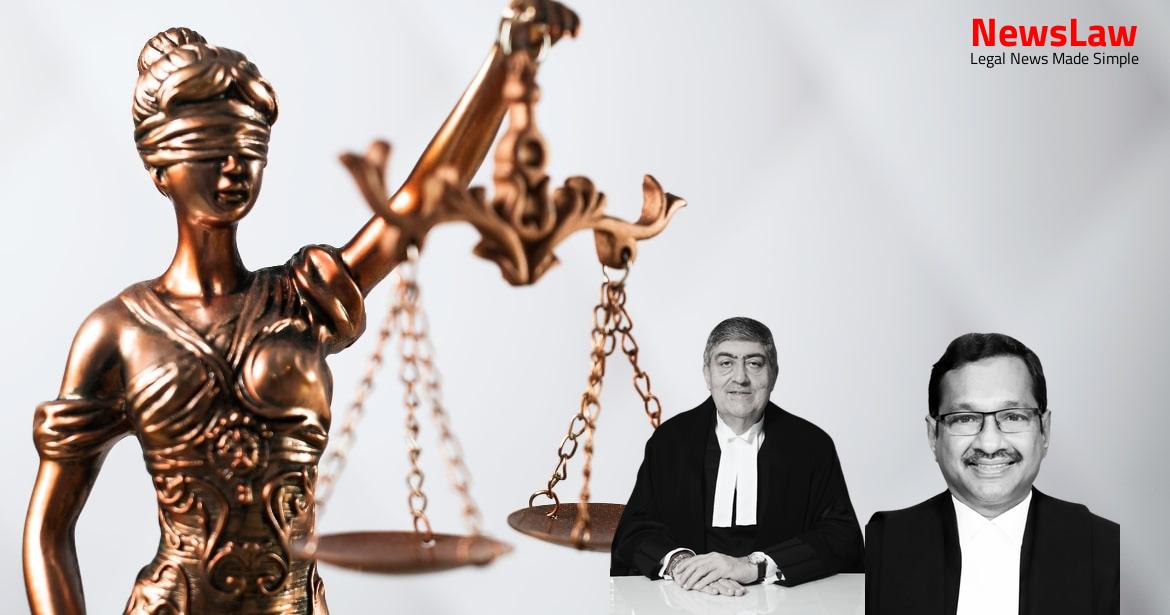In a significant legal development, the High Court of Chhattisgarh at Bilaspur confirmed the judgment and order of conviction passed by the Additional Sessions Judge, convicting the appellants for offences under Sections 148 and 302/149 of the Indian Penal Code. However, in a twist of events, the Supreme Court of India has now overturned the murder convictions of Balwan Singh, Latel Ram, and Santu @ Santram. Stay tuned for more insights on this landmark case.
Facts
- The High Court of Chhattisgarh at Bilaspur confirmed the judgment and order of conviction passed by the Additional Sessions Judge
- The appellants and other accused were convicted for offences under Sections 148 and 302/149 of the Indian Penal Code
- The Accused No 1 – Balwan Singh was involved in planning to kill Pitambar Singh due to previous enmity
- The incident took place on January 22, 2007, in the evening time
- The prosecution alleged that all the accused armed with deadly weapons went towards the field of Bhagwat Seth and murdered Pitambar Singh.
- Eye witnesses PW-9 and PW-16 saw the accused assaulting the deceased with lathis and a tabbal, with Accused No. 4, Ashok Singh, holding the tabbal.
- Charge under Section 120-B IPC was framed but the accused were acquitted of this offence.
- Drupad Singh (PW-1) discovered the dead body the next morning and informed Nar Singh Rajput (PW-17), the informant, who was the deceased’s uncle.
- The injured died at the scene and the accused fled, their conversation overheard by PW-11 and PW-12 who testified about the conspiracy to commit the murder.
- The Trial Court and First Appellate Court believed the testimonies of the eye witnesses and those who spoke about the conspiracy, resulting in convictions under Sections 148 and 302/149 IPC.
Also Read: Tower Infotech Ltd. Bail Order Appeal
Arguments
- Shri Sanjay Hegde represented the appellant Balwan Singh while Shri Rajeev Kumar Bansal represented the appellants Latel Ram and Santu @ Santram.
- They argued that the prosecution had planted the eye witnesses PW-9 and PW-16 and they were not present near the scene of the incident.
- The statements of these witnesses were recorded late, about eight days after the incident, even though they were present in the village.
- It was suggested that the police knew these witnesses were allegedly planted by the prosecution.
- Learned counsel for the appellants argued that evidence of PW-11 and PW-12 is vague, cryptic, and unreliable since accused for the offence under Section 120-B IPC were acquitted by the courts below.
- The learned counsel for the State supported the judgments of the courts below.
- Statements of the alleged eye witnesses, PW-9 and PW-16, were recorded eight days after the incident.
Also Read: Priority of Employees’ Dues in Asset Sale: SARFAESI Act vs. Land Revenue Code
Analysis
- The prosecution case about the presence of PW-9 and PW-16 on the spot appears to be artificial and concocted.
- The investigating officer’s delay in recording statements of the witnesses raises suspicion.
- The evidence of recovery of bloodstained items lacks proof of human origin and matching blood group.
- The prosecution’s explanation for witnesses’ delay in coming forward is deemed far-fetched.
- The disintegration of blood stains raises doubts about their origin and value as evidence.
- In cases where bloodstains are found but the blood group cannot be determined, the recovery of the weapon can still be used as evidence of human blood
- Failure to determine the origin of blood does not always render the evidence useless as it could be due to various factors like haematological changes or insufficient stain
- In cases where doubts arise, the benefit of doubt may be denied to the accused if other credible evidence of the prosecution is present and reasonable doubt is not raised
- Mismatch in blood groups on different items of evidence could lead to the circumstance not being proved against the accused
- Non-confirmation of blood group or origin may be important if the accused pleads a defense or alleges mala fides by the prosecution
- All accused were acquitted for the offence of conspiracy.
- Concurrent findings of both courts that prosecution failed to prove conspiracy to commit murder.
- Absence of conspiracy means no material to explain why accused gathered at Balwan Singh’s house.
- Shaky material raises suspicion about prosecution’s case genesis.
- Reliance on recovery not justified for appellants as prosecution did not prove charges beyond reasonable doubt.
- Benefit of judgment should extend to other accused convicted in the same case.
- Trial Court and High Court not justified in relying on eyewitness and other evidence.
Also Read: Landmark Judgement on Consumer Rights in Healthcare Sector
Decision
- The appellants, including Accused 1, Accused 2, and Accused 7 are directed to be released forthwith if not required in any other case.
- The other accused in S.T. No 57 of 2010 who have not appealed are also ordered to be released if not needed in any other case.
- The appeals of Accused 1, Accused 2, and Accused 7 are allowed, and their impugned judgments are set aside.
Case Title: BALWAN SINGH Vs. THE STATE OF CHHATTISGARH
Case Number: Crl.A. No.-000727-000727 / 2015



